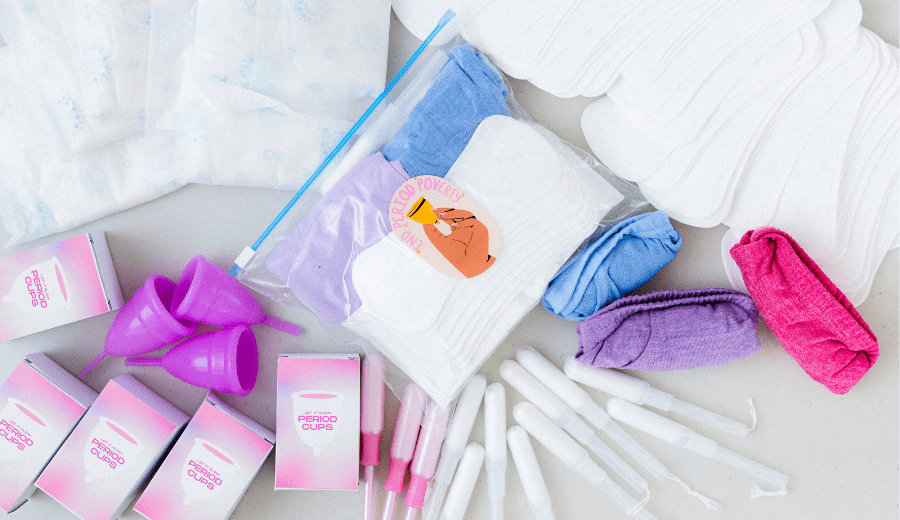There is no global health without menstrual health

By Menstrual Rights Global
Photo under creative license

The World Health Organization (WHO) convened for its 77th World Health Assembly in May this year to tackle global health priorities and security under the theme “All for Health, Health for All.” However, despite its critical role in addressing global health issues, the crucial topic of menstrual health was overlooked, say Menstrual Rights Global, a collective of activists, health workers and researchers working to promote menstrual health.
Menstrual Hygiene Day’s 10th anniversary fell in the middle of this year’s World Health Assembly. Yet, menstrual health still remained absent from the programme, with the notable exception of the United Nations’ and WHO’s Human Reproduction Programme’s side event.
Over the last decade, we have seen significant advances in menstrual health policy and programmes, including Scotland’s groundbreaking Act (2021) that offers universal access to free menstrual products, Taiwan joining Japan, Indonesia, and South Korea to offer menstrual leave, along with several other countries who have either removed the “pink tax” on menstrual products or the provision of menstrual products to adolescent girls in school.
Still, there was no commitment from member states during the assembly. It was a missed opportunity at an institutional level; as well as an opportunity for the type of one-on-one conversations that drive marginalised health issues forward within the architecture of global health.
Earlier this year, menstrual health was recognised in the Agreed Conclusions from the 68th Session of the Commission on the Status of Women, but there is still limited commitment from global leaders. In a year with over 60 elections and more than two billion people heading to the polls, as well as a well-funded and increasingly organised pushback on sexual and reproductive rights and bodily autonomy, it is critical that we continue to fight for menstrual health and the broader aspects of sexual and reproductive health rights if we want to preserve the equality, rights and dignity of all. Therefore, we call on member states to bring forth a resolution that protects the health, rights, and dignity of women, adolescent girls, transgender men, and non-binary people who menstruate.
Inclusive health means including menstrual health
The 77th World Health Assembly in Geneva, centered on All for Health, Health for All, offered a pivotal moment for global health institutions to engage with menstrual health. An inclusionary global health sector must consider, respond to, and make accommodations for the 1.8 billion women, adolescent girls, and people who are menstruating each month. It should recognise the specific health concerns and needs of people who menstruate. It must mainstream these across health and social care systems globally. We urge global health leaders to listen to the voices of those with lived experience, technical expertise, and decades of fighting for menstrual health and justice.
Health for All is at the heart of the WHO’s mission; it is core to the vision and aims of global health. All for Health should create and support a community of health advocates and experts to advance our understanding and practices. It should bring along all those involved in healthcare, including community health workers, inclusive of all genders, races, and abilities. As well as drawing on a wealth of experience — technical and lived — it should involve designing a policy environment that fosters better menstrual health practices.
We urge global health leaders to listen to the voices of those with lived experience, technical expertise, and decades of fighting for menstrual health and justice
At Menstrual Rights Global, we are proud to have built a strong coalition of voices that includes a diversity of geographies, races, genders, and experiences. Our approach combines knowledge from across global health processes, from grassroots to worldwide efforts. This subsequently demonstrates the strength of the ‘all’ in All for Health. We embody the belief that for inclusivity, healthcare needs must reflect on the diversity of experiences of menstruation. We encourage an ‘All’ that particularly reflects those agenda items related to sexual and reproductive health, including maternal health. We stand with a WHO that reflects a broad ‘All’ and that considers voices inclusively.
Menstrual health is a human rights issue
We know that menstrual health is not just about provision of products, it is a public health issue and human rights issue. WHO defines menstrual health as “a state of complete physical, mental, and social well-being and not merely the absence of disease or infirmity, in relation to the menstrual cycle”. Within menstrual health policy development, Health for All includes a health system that helps overcome period poverty and caters to displaced populations and those menstruating with disabilities.
The organisation’s menstrual health work focuses on five aims: educating girls about menstruation; to create norms that see menstruation as healthy and positive; improving access to menstrual products, running water, functional toilets and privacy; and improving access to competent and caring health workers.
Yet it remains a deeply neglected global health issue. This is further entrenched by the lack of direct engagement with menstrual health as a cross-cutting health issue at vital global policy moments, such as the World Health Assembly.
An intersectional approach
Engaging an explicit menstrual health approach is vital in achieving these aims and addressing maternal, sexual, and reproductive health challenges. As donors are beginning to recognise, funding menstrual health programmes helps achieve cross-cutting aims that work towards co-benefits across sustainable development goals, including healthy populations.
However, there is a distinct lack of donor leadership. This leaves most of the programming and advocacy to feminist movements, who are tenaciously responding to the needs of their communities, whilst trying to advocate for national and global policy change.
We believe that menstrual health and sexual and reproductive rights should be addressed across the life course, and should be driven by multi-sectoral cooperation that reflects the intersectionality of menstrual and sexual and reproductive rights with other determinants of health. This includes building a global health architecture that reflects a rights-based approach and menstruation as a global health crisis for many.
As global health institutions reflect on the successes of this year’s World Health Assembly, it is a critical opportunity for global health leaders to reflect on the lack of engagement with menstrual health within the broader global health framework. Menstrual Rights Global calls for a robust commitment from WHO to advance policies that protect the health, rights, and dignity of women, adolescent girls, and every person who menstruates.
In the future, we believe that menstrual health needs to be included as an explicit agenda item in global decision-making at events such as the World Health Assembly. We encourage global leaders and multilateral organisations to advance policies that provide for all areas of menstrual health from menarche to menopause, so that women, adolescent girls, transgender men and non-binary people who menstruate can fully participate in society.
By Menstrual Rights Global members:
Frances Brill, Policy Lead, Switzerland
BismahNayer, Advocacy Lead, Pakistan
Olivia Hooper, Advocacy Associate, UK
Saloni Munot, Policy Officer, India
Maisha Zaman, Policy Officer, Bangladesh
Georgina Maima, Communications Specialist, USA
Dr Jennifer S. Martin, CEO, Scotland

READ MORE

One thought on “There is no global health without menstrual health”